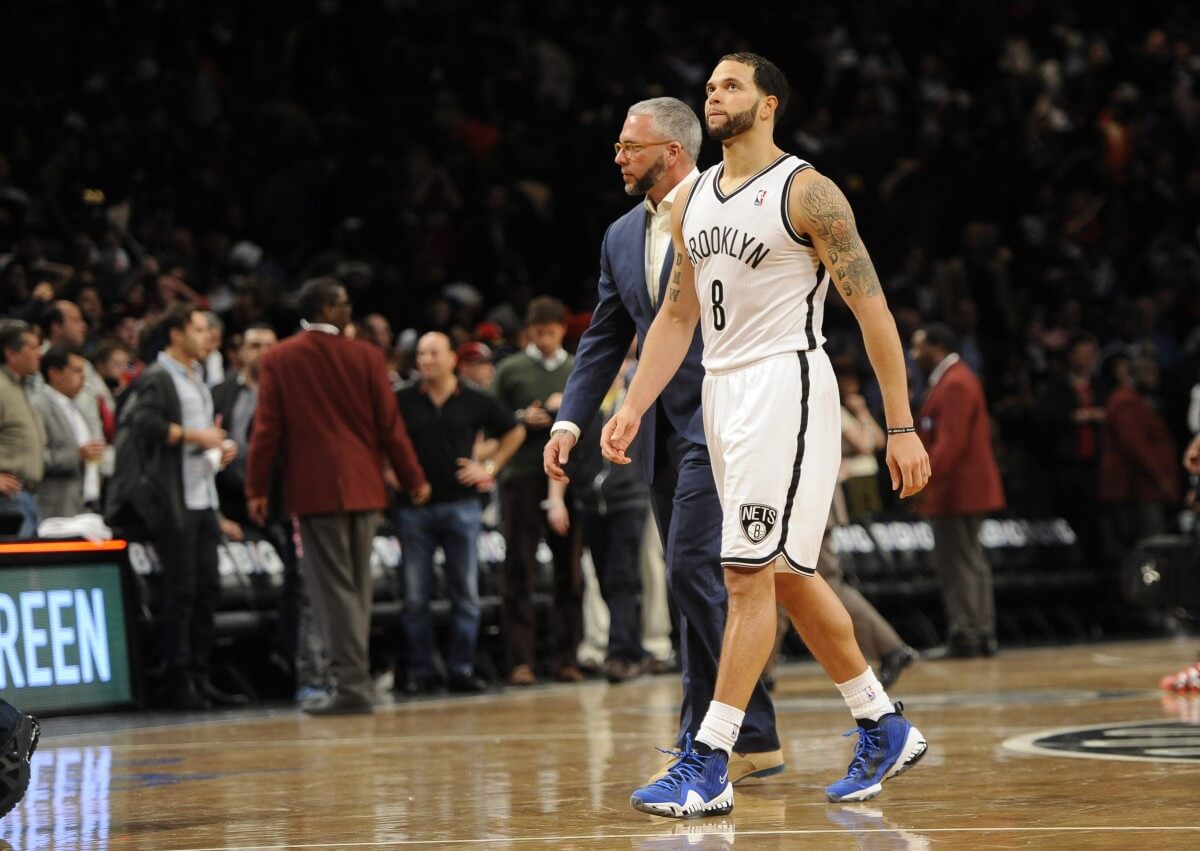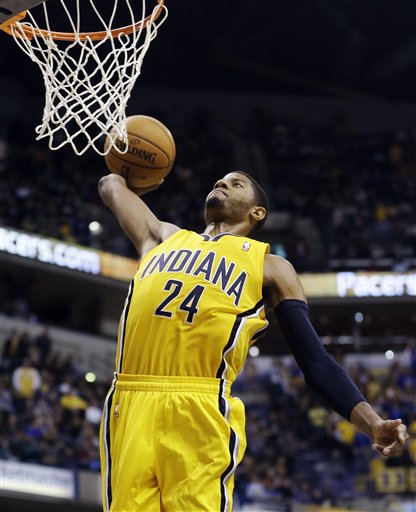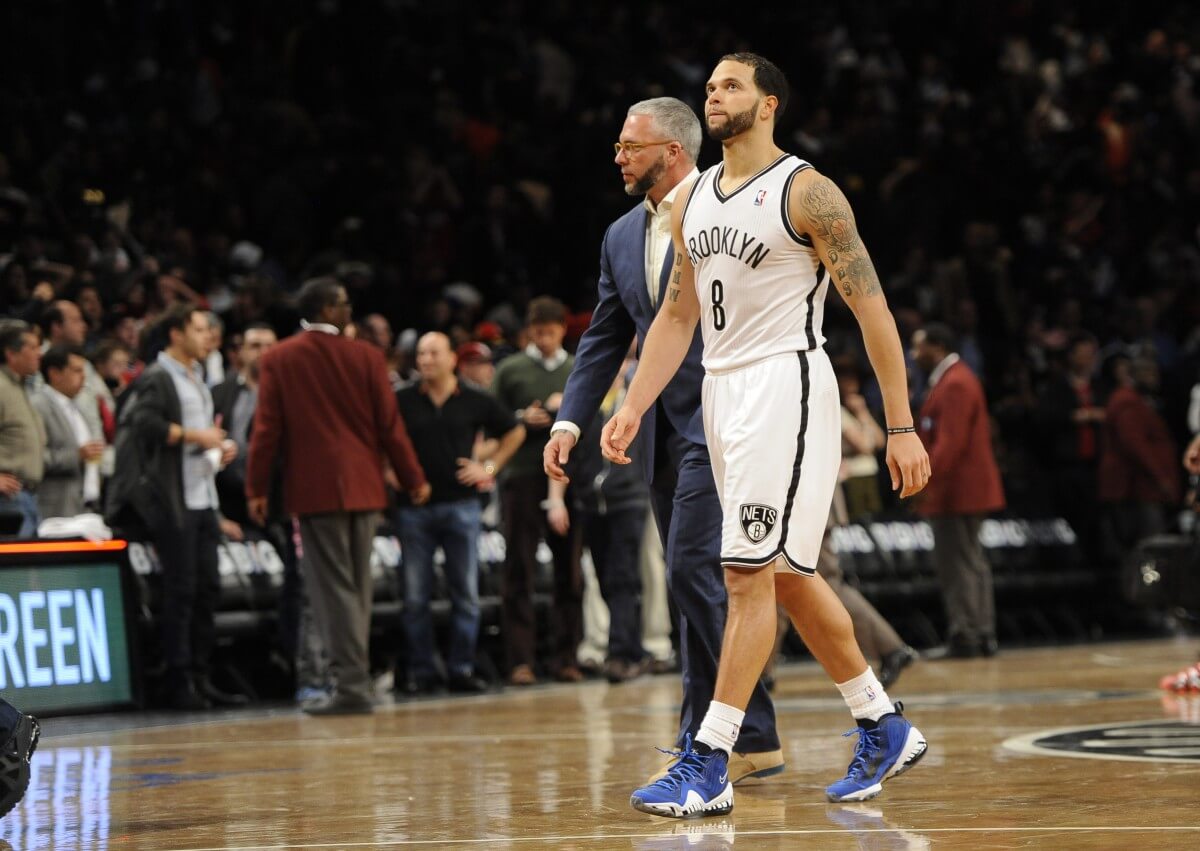
Noise followed Deron Williams like a shadow. The less he made, the louder the cacophony grew. He lacked confidence. His body hurt. He was overpaid. He didn’t want to be a leader. He didn’t like New York. He didn’t like his coaches. The fans didn’t like him. Everyone had something to say, and the less he said, the more it allowed everyone else to fill in the gaps.
It started off quietly, with a few whispers here and there. He learned about the trade to the Nets via SportsCenter, not from either team, and openly admitted he had qualms about joining the then-woeful Nets. He didn’t shoot well in a dozen games, then struggled through a shortened season throwing passes to guys like Shelden Williams and DeShawn Stevenson, putting up big numbers on a 22-44 team. There were notes of worry, but they seemed unimportant, given his backing band.
Nonetheless, the team built around him as the franchise player. The first major marketing campaign featured him front and center. “Hello Brooklyn, I’m #8, Deron Williams. Three-time All-Star and father of four,” they said for him. The team acquired Gerald Wallace & Joe Johnson in present-centric moves to capitalize on the Brooklyn boom.
His first shot in a Brooklyn Nets uniform was on the first play in Brooklyn Nets history. Williams buried a mid-range jumper from the left wing on a set designed for him, and later that night got the game ball from coach Avery Johnson, as the catalyst that brought the team together. Less than two months later, Williams had publicly criticized Avery Johnson’s offensive system, and Johnson was gone, fueling murmurs that Williams clashed with coaches.
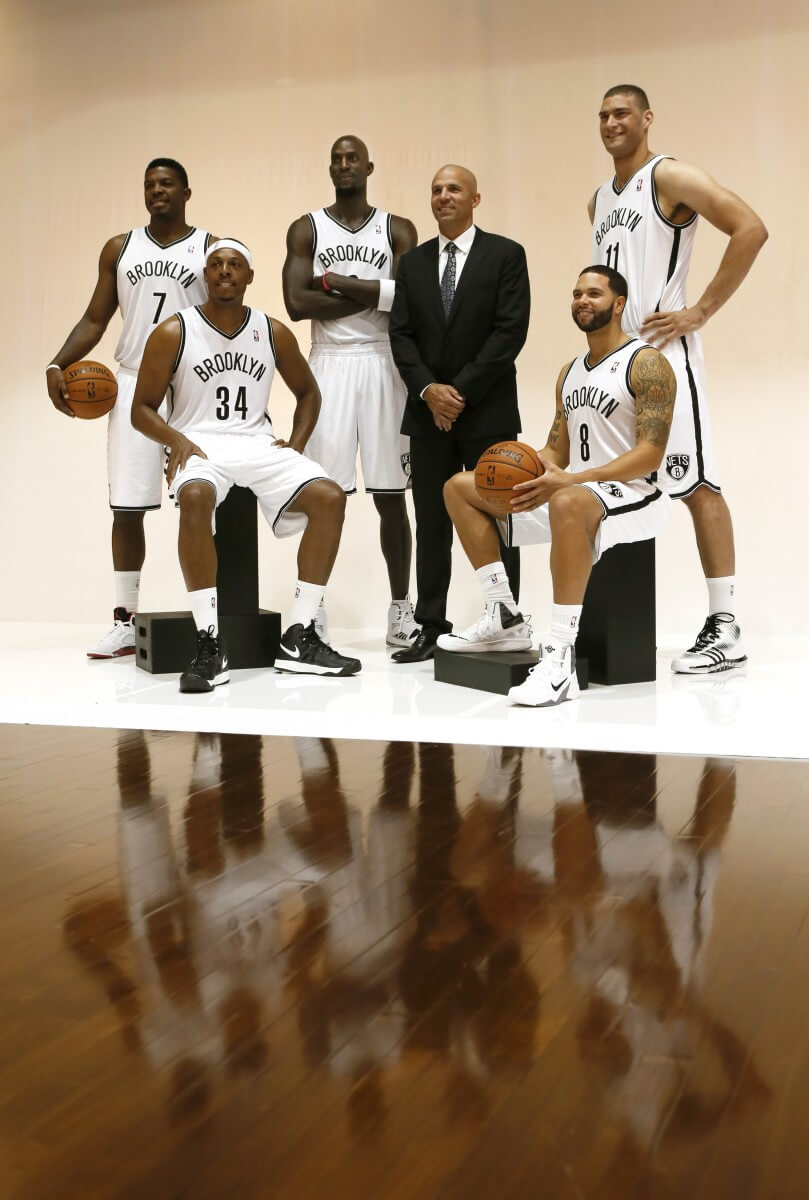
Within 18 months, Garnett and Pierce were both gone. With expectations whisked away in the wind, the Nets slunk into the eighth seed of the playoffs, and were bounced in six games by the Atlanta Hawks. The idea of Williams as a franchise player was long a memory at this point, and coach Lionel Hollins, never one to bite his tongue, said as much himself.
By July 2015, Williams was in the background, as the chatter claimed he clashed with management for months. Publicly, he demurred, playing politics in scrums. He turned down every one-on-one request from NBA writers for almost the entirety of his Brooklyn tenure, even softball interviews for national television, and refused to speak to the media on the last day of the 2015 season about his uncertain future. The talk was Williams could get bought out, or stretched, or traded. He made no public declarations.
Now, the sound is silenced. Williams and the Nets agreed to a $27.5 million buyout, and when he clears waivers, he will sign a two-year deal with the Dallas Mavericks.
Williams could thrive in his new position. He will be out of earshot from the New York buzz in his hometown, and the Mavericks needed a point guard.
The move was part financial, part personal. Waiving Williams and then stretching the buyout cost puts the Nets below the luxury tax this year, even allowing them to keep Joe Johnson and his massive $24.9 million expiring contract. It’ll be the first time the Nets enter a season in Brooklyn projecting to end up under the luxury tax. Structuring Williams’s buyout this way saves the Nets roughly $61 million in their roster billing this season, and the spiking salary cap means the money down the line won’t hurt them nearly as much.
Unless you’re making the argument that Williams’s moodiness would’ve seeped into the young minds of new Nets and ruined their abilities to play basketball, this was not a basketball move.
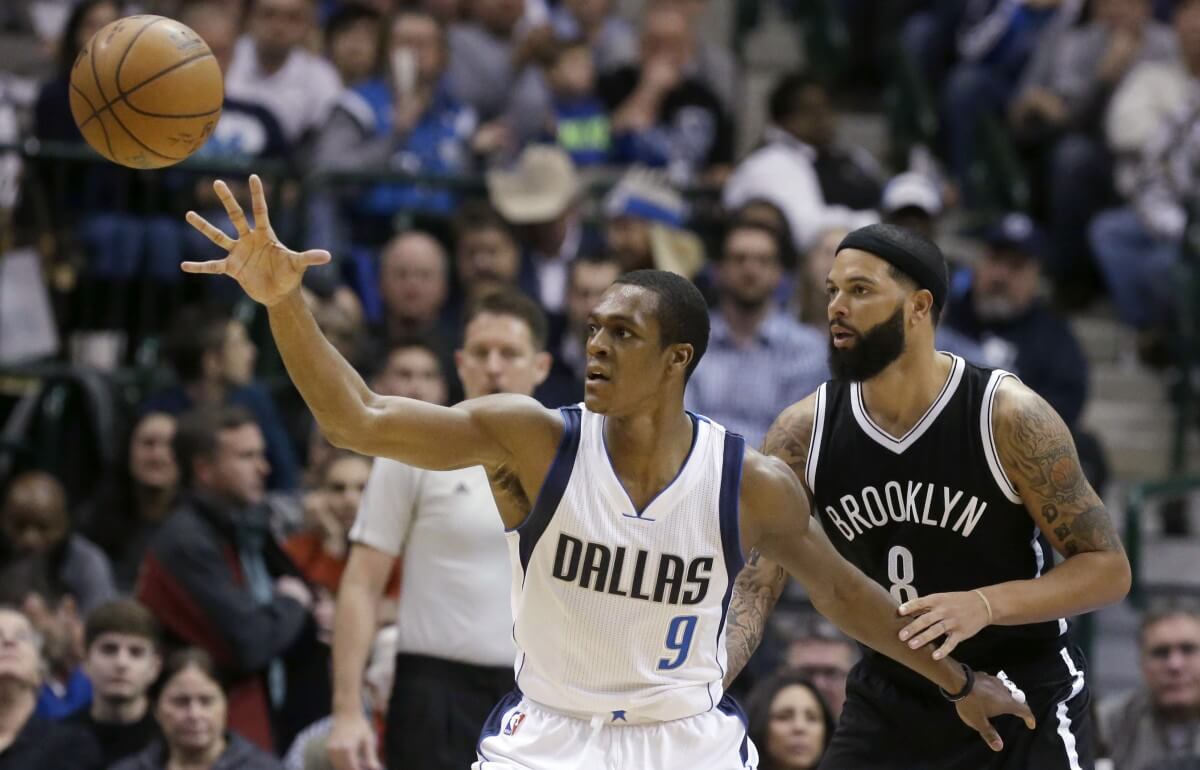
But Williams had never lived up to the lofty expectations that come with a max contract and a big market, and as the symbol of the franchise’s pricy failures, both he & the Nets were ready for a breakup. The Nets have not hidden from the trade rumors, and though Williams stayed professional in his answers, the constant rumors clearly affected his desire to stay.
I have stood face to face with a monotone, glassy Williams as he tried to explain losses, and face to face with Williams while he described wins with the same tone and fervor. Even when the team was successful, Williams was coming to terms with his own creaky body, his limited lift, his waning confidence, with the slow realization that he was a highly-paid, underperforming former All-Star who’d slowly lost his role as Brooklyn looked forward without him.
I have watched Deron Williams deflect reasonable, honest questions about his body like they were an insult. I appreciate your concern for my health was a common refrain, or just a blank stare and a “next question,” even as he missed games and struggled through possessions. I have watched him dis the New York Knicks and Kobe Bryant in candid moments that were as few and far between as his signature games.
It wasn’t always this way. I watched a rejuvenated Deron Williams throwing down a reverse two-handed dunk in Game 1 against the Chicago Bulls in April 2013, putting an exclamation point on a blowout that would two weeks later prove irrelevant. I watched him set an NBA record for three-pointers in a half with nine, sitting next to Nets play-by-play announcer Ryan Ruocco just laughing, because I had no other way to process what was happening. We saw him dunk on Roy Hibbert and drop 57 on the Bobcats. I watched him trash-talk A.J. Price, barking “this is my home now!” about Brooklyn’s Barclays Center during a preseason game in 2012. There were always sizzles in the pan.
But he was rarely considered the catalyst for Brooklyn’s victories. Joe Johnson hit the game-winners. Kevin Garnett anchored the defense. Paul Pierce made damn sure everyone knew why he was there. The little guys — Andray Blatche, Shaun Livingston, Reggie Evans — flourished in one way or another. There were maybe a dozen times in five years when you thought “wow, Deron Williams won the Nets that game.” Somehow, Williams was squeezed out of the team that had sold him as the centerpiece.
Even his final shining moment — an out-of-nowhere, 35-point playoff performance against the Hawks that was so good that it wasn’t even vintage, just mystifying — served as a time for the team to rally around him in support. The story was Unity, not Stardom; “he’s ours,” not “he’s great.” It was a supreme fall from grace from what his past billing as the leading man.
Williams’s last shot in a Brooklyn Nets uniform came on May 1, 2015. It was a twisting layup against the Atlanta Hawks, in the fourth quarter of Game 6 of the NBA playoffs, with the Nets down 22. It was blocked by Hawks backup Mike Muscala.
Deron Williams’s time with the Nets is over. But the Deron Williams “era” ended long ago.

